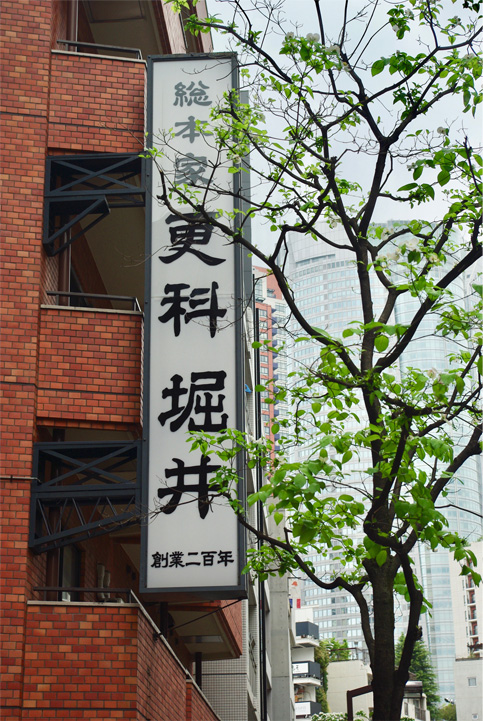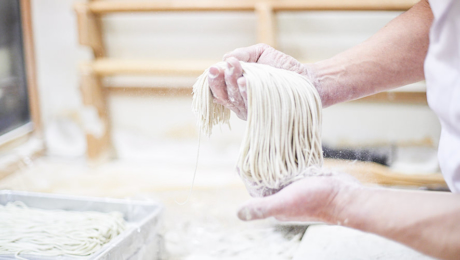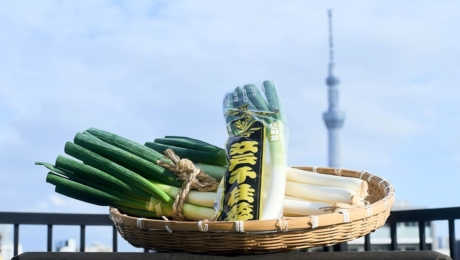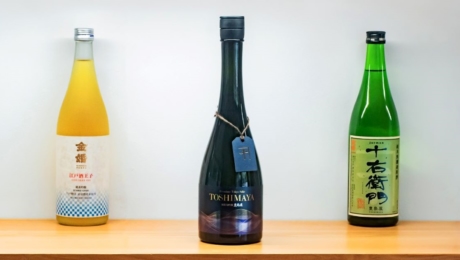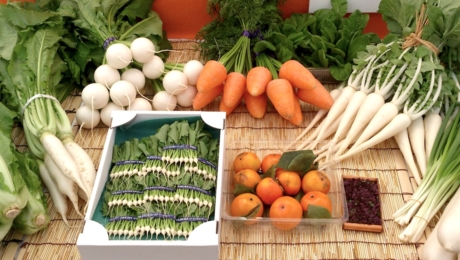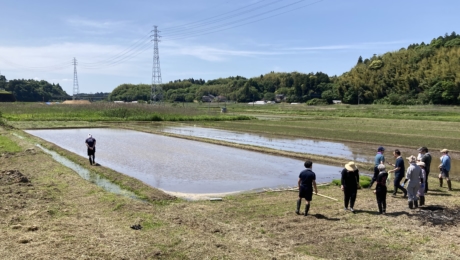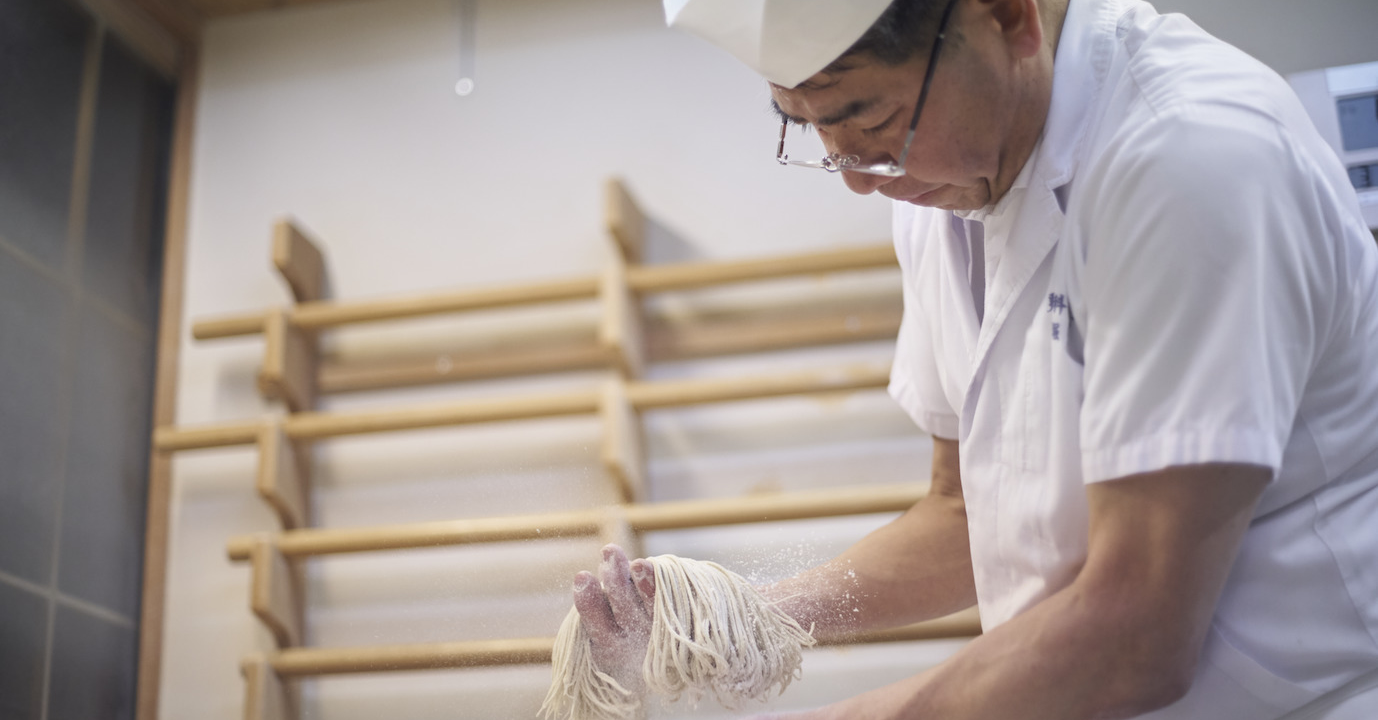
As a Japanese, consciousness of “How am I a pro?” makes a difference
2019.09.09
FOODThe ninth generation master of the long-established Sohonke Sarashina Horii soba restaurant, Yoshinori Horii, was asked about the up-coming 2020 Tokyo Olympics and Paralympics. When queried whether this might be a perfect chance to make foreign visitors aware of Japanese culture and cuisine, he responded, “Our shop has always had lots of foreign visitors, and I myself have traveled overseas extensively. The staff is accustomed to serving people from other countries, so we are well-prepared to take care of them. We enjoy interacting with guests from various countries.”
He is also actively involved with cultural exchanges through the Japanese Culinary Academy. Sohonke Sarashina Horii has also decided to open a shop in New York.
“The members of the Academy have a sense of mission, feeling that, when they bring Japanese culture bring overseas, they don’t want to describe it in terms of vague concepts; they want to explain the real thing. Every one of us shares the determination to approach new situations with a clear understanding, as a Japanese, of ‘What makes me a pro?’ Transmitting culture with an unwavering awareness of one’s foundations—I feel this is absolutely essential.”
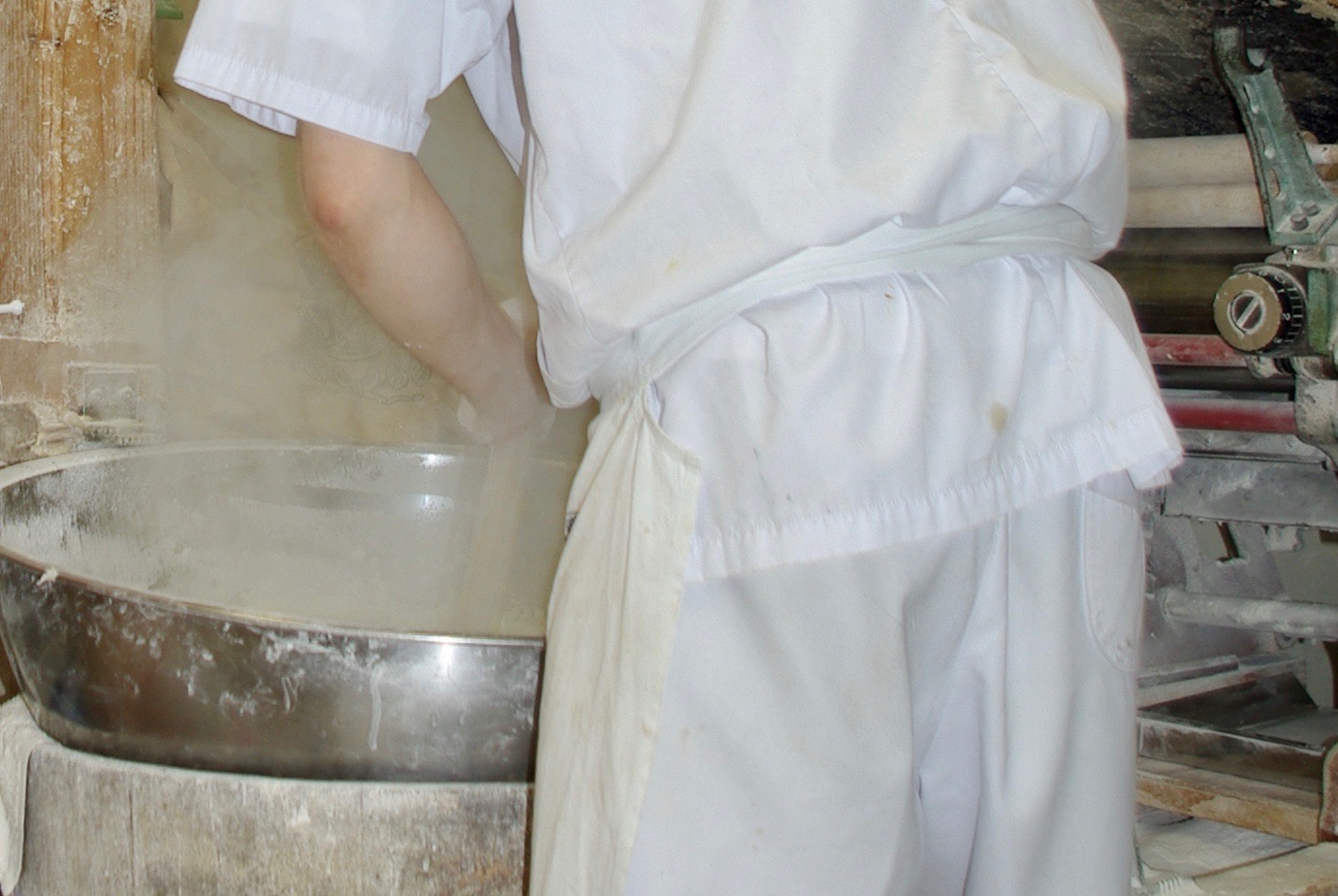
When answering questions about his field, Horii, as a culinary professional—and as a soba professional—wants to inform guests about the flavors, as well as things like the high nutritional value of soba. “It’s important for facts, such as the reason why soba broth has a strong umami flavor, to register on their consciousness. Generally the various cuisines around the world use fats and sugars to trigger a release of dopamine, which causes pleasant feelings in the brain, but in Japanese cuisine the umami is what triggers the dopamine. That’s how we create a sense of satisfaction while keeping fats and sugars to a minimum. That’s why Japanese cuisine has been registered as an intangible cultural heritage by UNESCO as a healthy food culture. Soba broth is based on a concentrated, condensed extract of katsuo (skipjack tuna) that has been boiled down for a long period of time and made into flakes. Another characteristic of soba is the low glycemic index (GI), an indicator of how fast blood glucose levels rise after eating. It’s vital to communicate this wisdom accurately.”
He is also involved in a project for growing buckwheat in Africa, in the Democratic Republic of the Congo. “Buckwheat has a good balance of proteins, so even in small amounts it’s nourishing. I feel that these aspects, such health benefits, should be explained in a scientifically sensible manner, in harmony with the conditions of the country,” says Horii. His conversation is animated by the thought that this is something that can bring happiness to the people of the world.
